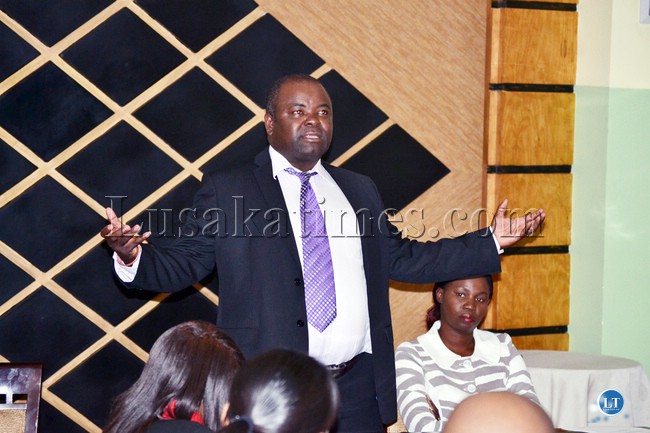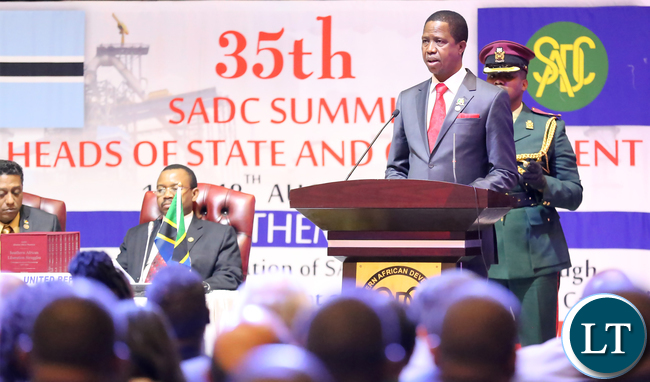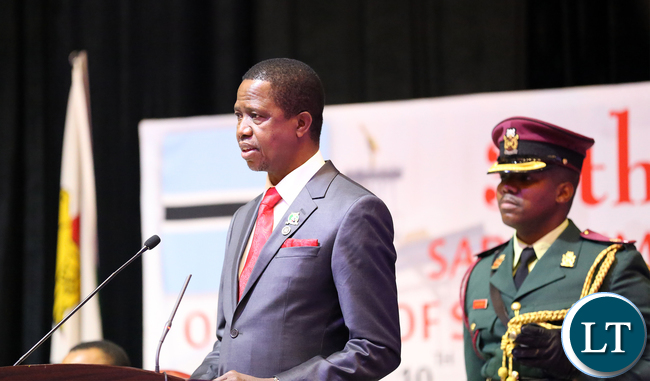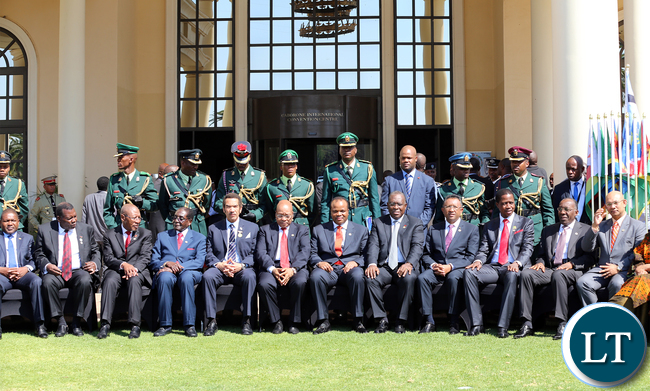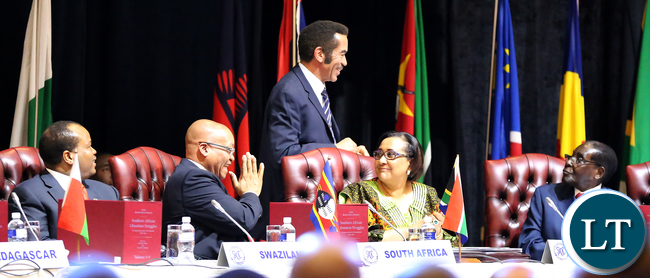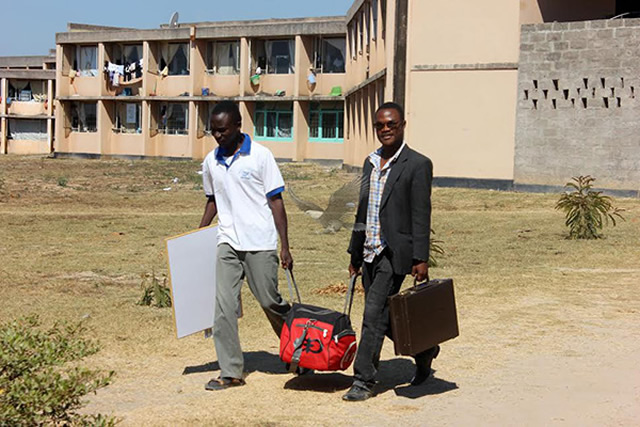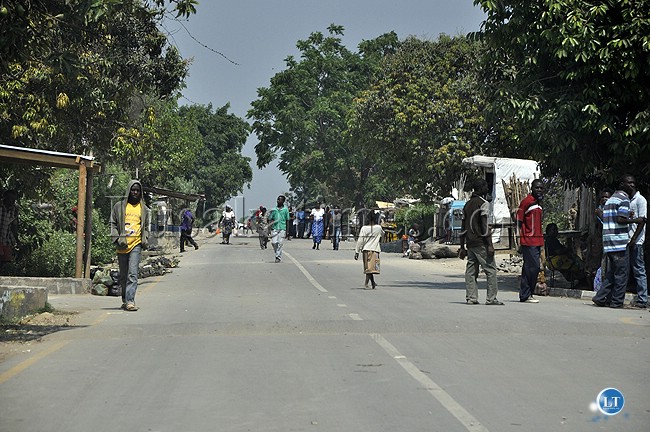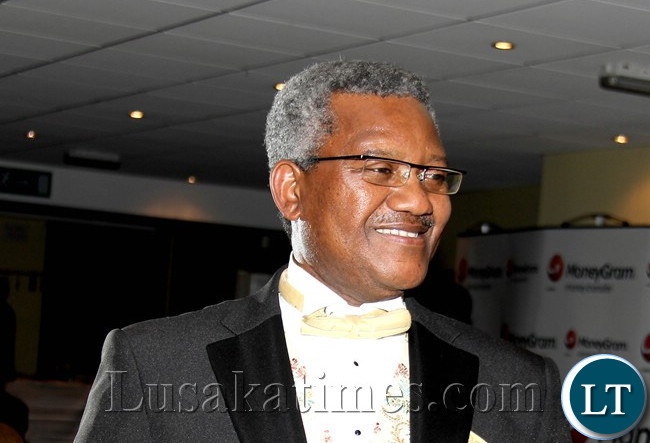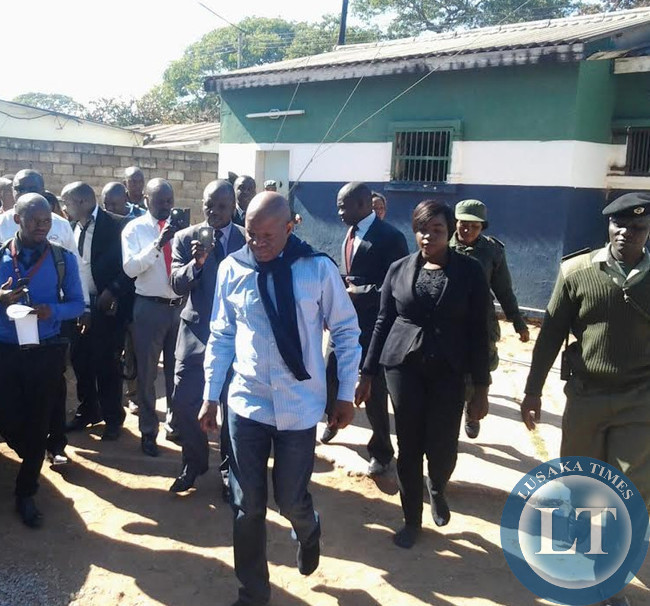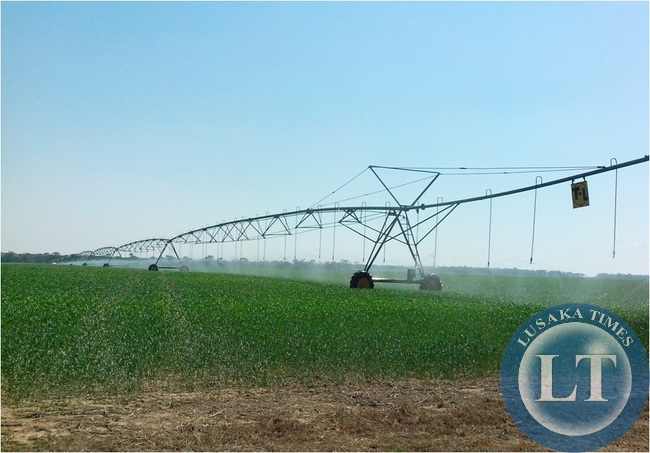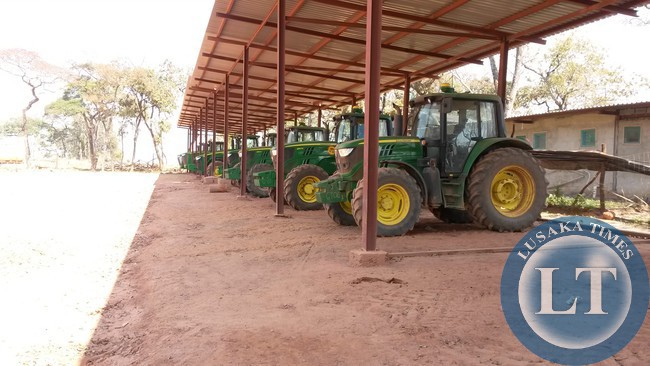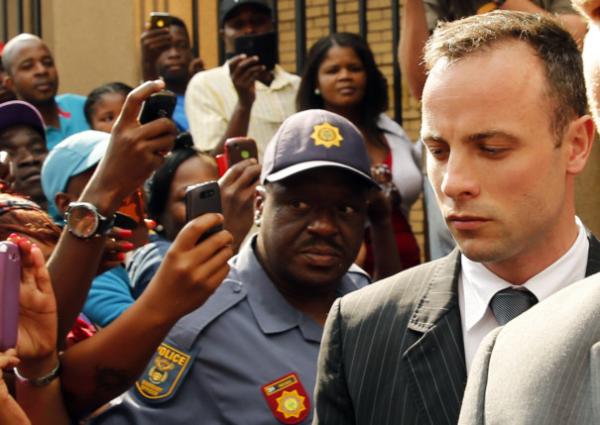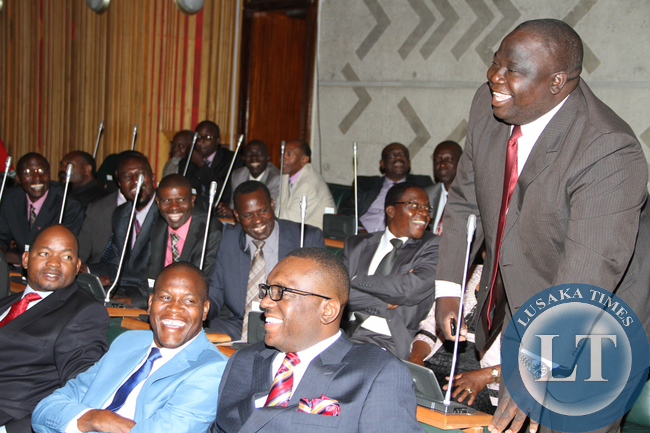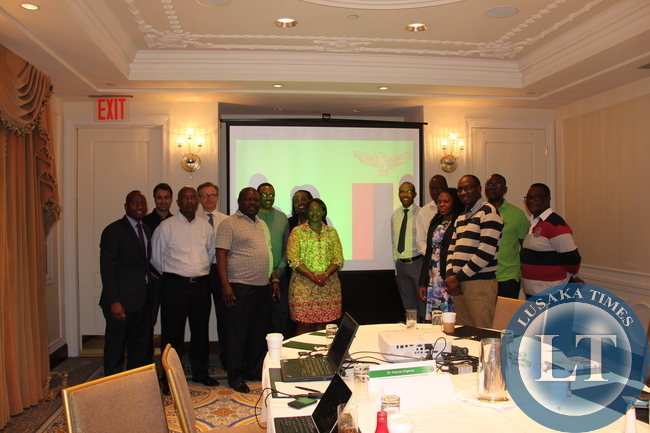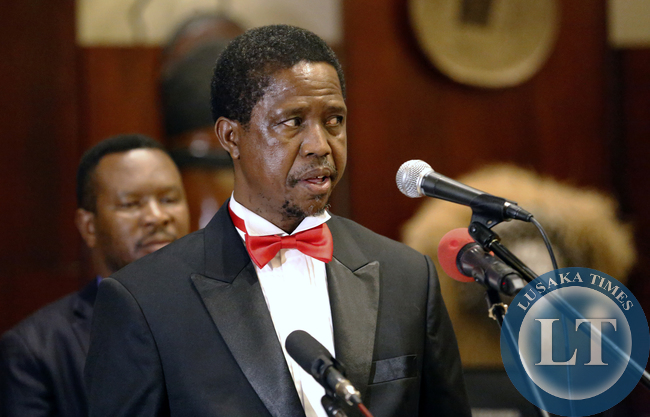Zambia, on Thursday 23rd July 2015 successfully issued out and procured its third euro bond of USD1.25 billion in four years having issued the first for USD 750 million in April of 2012 with the second for USD 1 billion coming in June 2014 The Zambian government has emphasized that the bond proceeds will be used, “As the case has been in the past, the funds will be used in infrastructure related projects in the area of road, energy, education, health, water and transport sectors in order to better the lives of the Zambian people,” Mr. Christopher Mvunga (Deputy Minister of Finance) said.
It is publicly known that the country is securing the funds to plug a budget deficit that could swell to K 20 billion ($2.64 billion) by the end of 2015 from an initial forecast of K8.5 billion ($1.12 billion) It had been widely expected that the bond issue will be between USD 1.5 billion and USD 2 billion as expressed by Presidential Spokesman, Amos Chanda, hours before the bond was issued.
Zambia’s external debt stood at $4.8 billion, about 18.5 percent of Gross Domestic Product (GDP). Its domestic debt burden is $3.7 billion, about 14.2 percent of GDP, Finance Minister Alexander Chikwanda said in June 2015.
The addition of this latest bond to the country’s debt, takes the country’s external liability to USD 6.05 billion dollars and internal domestic debt at USD 3.7 billion representing a total of USD 9.75 billion which is 37.6% of GDP Of significant note and difference with this last bond issuance is the yield rate of 8.97% which is significantly higher than the previous two that were a debut $750 million bond in 2012 at 5.375% and a $1 billion bond last year at 8.5%.
There also has been a progressive increase in the amounts from USD 750 million to USD 1.25 billion in the three years.
The current higher rate is an indication of the relatively higher risk the country is perceived to carry. Zambia is not alone in the pursuit of sovereign bonds (a debt security issued by a national government, known as a Eurobond, and is denominated in a foreign currency usually the dollar rather than what its name implies in Euro).
In the period post 2008 global financial melt-down, African countries have taken to bonds on the capital market like bees to honey. Between 2011 and 2014, at least 10 sub Saharan African countries procured sovereign bonds which included, Senegal ($500 million, 2011), Nigeria ($1 billion,2011), Namibia ($1.5 billion, 2012) Angola ($1 billion, 2012) Zambia ($750 million, 2012), Gabon ($1.5 billion, 2013), Ghana ($750 million, 2013), Rwanda ($400 million,2013), South Africa ($2 billion, 2013), Ethiopia ($1.5 billion, 2014) and Kenya ($2 billion, 2014).
The argument that the countries have forwarded for seeking debt from the capital markets all seem to revolve around the reason that the sovereign bonds are cheaper, with at least Rwanda, Gabon and South Africa using part of these proceeds to re-finance public debt.
However the single most driving factor to African countries opting for the capital markets followed the 2008 recession which dried up bilateral loans and grants forcing the third world countries to find alternative sources of financing.
In considering the cost of finance for the Eurobonds, internal analysis of the exchange rate risk must be a key factor, unless the country truly believes that it has the capacity to raise the resources for repayment of the debt from commodity export revenue.
The future indicators are all very ominous showing a slowdown in the demand for copper from china, a possible increase in interest rates by the USA, lowering oil prices and downgrading of the global growth indicators, all factors that will put pressure on countries that have issued sovereign bonds.
In Zambia’s case, the cost and repayment equation, on its current total acquired Eurobonds of USD 3 billion cuts deep into the country’s reserves as the country’s burden on interest alone for the next six years from 2016 -2021 will be USD 237.4 million annually.
The period between 2022-2027 will put the country’s debt management capacity to full test as the principal repayments on the bonds become due.
In 2022, the first 2012 USD 750 million bond plus the USD 237.4 million interest will be due, whilst 2023 will offer relief as only an interest payment of USD 197.1 million will be due, before a four year repayment schedule of USD 1.197 billion (2024), USD 529.1 million (2025), USD 491.7 million (2026) and USD 453.3 million (2027) comes into effect.
It clearly shows that the country’s Eurobond liability over the next 12 years is a total of USD 5.46 billion (principal + interest).
It thus stands that the creation of the sinking fund to create a buffer to service this debt will require a minimum of USD 440.5 million of the country’s annual budget to be deposited into the fund.
This would cover the full repayment both in interest and principle for the total sum of the three Eurobonds, on the conditionality that the country does not acquire additional debt.
The funds duly deposited into the sinking fund can also be used, as an economic growth stimulus (EGS) package into the financial institutions to enhance private sector lending to boost economic growth in the medium term, as well as save the country a minimum of USD 210 million in interest earnings.
This economic stimulus will far surpass the paltry USD 20 million the government allocated to the Development Bank of Zambia out of the debut USD 750 million bond.
The development of the private sector, specifically SMEs will require a serious commitment on the part of government to spur the growth that will not only create jobs for the youth but also add meaningful value to the country’s capacity to increase government revenue by increasing the tax base.
The financial boost into the financial market of these funds will also have the added effect of reducing interest rates, on the assumption that government does not borrow the funds back as domestic debt.
The country, carries two major risks, in the procurement of the sovereign bonds, and potentially the highest risk lies in the debt sustainability risk.
This is the risk associated with poor management of the proceeds of the Eurobond, and they end up being invested in none income generating social infrastructure to the extent that the government is unable to raise the necessary funds to repay the loan.
The arguments in support and against the investment options undertaken by the Zambian Government for the first two USD 1.75 billion Eurobonds is a full debate for another day. The second country risk on the bonds is the exchange rate risk.
It is generally accepted that increased cash inflows leads to exchange rate appreciation but this is not a given.
Currency appreciation is expected in the short term but the long term stability of the currency is dependent on factors beyond the inflows which will include government fiscal policies, world copper prices, resolution of mineral royalty tax policies, management of domestic revenue collection, budget deficit position, exchange rate volatility itself and ultimately the stability with which we will transition across the 2016 general elections.
In the five year period 2010 to 2015 the Zambian Kwacha has depreciated against the major international currencies denominated by the US dollar by an average of 10.6%, falling from a low of K4.76 as of Jan 2011 to the current rate of K7.82 as of Jul 31st 2015.
The three Eurobonds have been acquired at an average rate of 7.6%, and if we factor in the depreciation, the bond would cost a minimum of 18.2% and the argument for the Eurobonds being a cheaper source of development funding will be dead in the water.
The valid argument in support of eurobonds lies in the fact that external borrowing by government facilitates a greater degree of access to local funds by the private sector for investment and is a key contributing component to effectively reducing local interest rates.
It is worth noting that the scenario as presented in this article, specifically reflects the implications and status of the Eurobond funds and does not take into account the additional USD 3.05 billion external debt (bilateral, multi lateral, grants) and the USD 3.7 billion in domestic debt which would mostly be short term debt financing.
The immediate mitigating course of action is to establish the sinking fund, however the question at hand is does the country have the capacity to fully service the sinking fund deposit of USD 440 million annually, and still maintain a fiscal balance between offering national social infrastructure development and limit the budget deficit to within 5 or 6% of GDP?
It is unquestionable that government will require to put in place additional measures to mitigate the risk associated with possibility of default on these bonds, enhance the country’s capacity to generate the foreign exchange revenue and spur the country’s productivity to meet the challenges associated with the repayment of its debt.
The country, prudent with stringent economic reforms, will require a strong political will, the understanding and support of the public and the resolute fiscal discipline to manage the current expenditure to within budget provisions.
The country faces the immediate challenge associated with the current power deficit, which remaining unresolved will plunge the GDP to levels that could take years to recover from as the country’s reduced productivity and internal losses could diminish the country’s GDP by more than 20%
The statistic that the country’s debt portfolio is within international standards of under 40% of GDP, is a measure valid on the assumption that the other factors and economic indicators are positive and are showing robustness to remain stable.
The other argument to this assumption would be based on the fact that the country has a major part of the market leaders in industries that contribute significantly to the GDP are international companies registered outside the Zambian domicile.
Thus a more true measure of the size of our economy would be to use the Gross National Product (GNP) which would exclude productivity for whose income is booked in a foreign territory even though it is generated within Zambia.
This would give a more accurate reflection of the country’s capacity to service the debt. Zambia’s macro indicators are highly fluid showing volatility with the slightest diversion in balance of any of these indicators.
The downside in the equation of the Zambia Eurobond is that the country is using the proceeds from the bonds to finance recurrent expenditure.
How does the country intend to finance any deficit in the budget for the coming years? A default on the interest coupon payments or principle will leave the country with no options but to negotiate for multilateral support from the World Bank and the International Monetary Fund, succumbing to stringent multi-lateral austerity measures and conditions that will impact negatively on the country’s capacity to provide basic services to its people.
